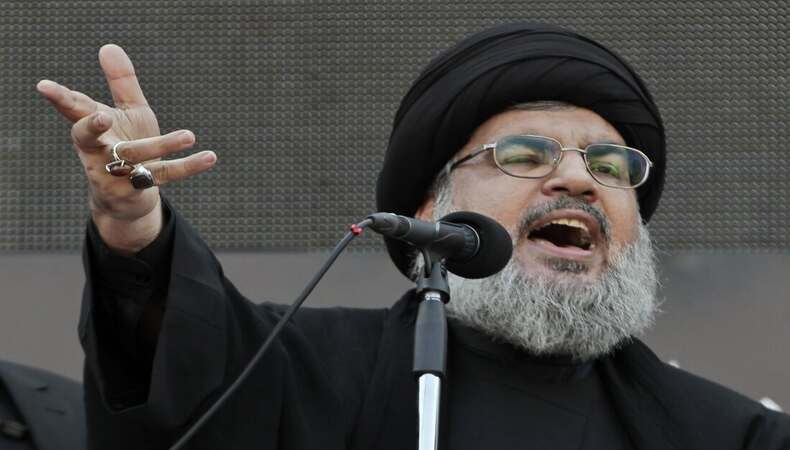Who Will Succeed Hassan Nasrallah as Hezbollah’s Next Leader?

Hezbollah’s long-standing Secretary-General, Hassan Nasrallah, passed recently, leaving a leadership gap in the organization. Leading Hezbollah since 1992, Nasrallah was a prominent person both inside the movement and around the Middle East. Along with the loss of a leader, his murder on Friday night during a large-scale Israeli attack in southern Beirut also marked the passing of a man who embodied Hezbollah’s character for decades. Given Hezbollah’s ongoing military operations and the impending ground incursion into southern Lebanon, his passing begs urgent issues regarding the group’s future.
Legacy of Nasrallah and Challenges in Leadership
Nasrallah’s leadership transcended his official position as secretary-general for Hezbollah. Many considered him as the face of the Lebanese Shia movement, both revered and hated all around. Nasrallah molded Hezbollah’s military and political approach since inheriting the post in his 30s, hence strengthening its power both inside Lebanon and beyond. Leading Hezbollah during pivotal times, including wars with Israel, he kept the group militant while negotiating Lebanon’s convoluted political scene. Strong ties to Iran and deep roots in the Shia community in Lebanon let Hezbollah flourish under his direction into one of the most powerful groups in the area.
Hezbollah will not find replacing Nasrallah a simple chore. The movement has been permanently changed by his charisma, power, and extended stay. Along with the leadership of a strong company, his successor will also be in charge of directing Hezbollah through a progressively perilous and unpredictable moment while Israeli airstrikes keep on and regional tensions rise.
Leading contenders are Hashem Safieddine and Naim Qassem
Hashem Safieddine and Naim Qassem have become two names that might follow Nasrallah. With tight ties to the leadership of Hezbollah, both individuals have been well-known personalities within the organization and regarded as near to Nasrallah.
Usually regarded as a top candidate for the post is Nasrallah’s cousin Hashem Safieddine. Safieddine, a cleric who, like Nasrallah, sports the black turban symbolizing descent from Islam’s Prophet Mohammed, has been a major voice within Hezbollah for years. Along with his religious authority, his family member status and physical likeness to Nasrallah could support his candidacy. Particularly in reference to Hezbollah’s opposition to Israel and its backing of the Palestinian cause, Safieddine has been vocal in his endorsement of the violent posture of the group. Declaring, “Let the enemy prepare himself to cry and wail,” he promised significant reprisal against Israel in June following the murder of another Hezbollah commander.
Nasrallah has meticulously planned Safieddine’s ascent among Hezbollah’s hierarchy. He has been appointed important positions in several bodies over the years; some of which the public is not aware of yet. Recent sightings of him, including visits to Hezbollah strongholds and public comments against American policy, point to his being prepared for a leadership post.
Hezbollah Veteran Deputy Leader Naim Qassem
The long-serving deputy leader of Hezbollah, Naim Qassem, is also quite qualified for the top post. Working closely with Nasrallah during his term, Qassem has been a main player in Hezbollah for decades. Like Safieddine, Qassem is a preacher steeped in the Shia society of Lebanon and well-known among Hezbollah’s inner circles. His long-standing position within the company and great experience qualify him as a natural leader.
Still, Qassem’s leadership style is considered as more subdued than Nasrallah’s more public-facing one. Although Qassem has often stayed out of the media attention, concentrating on internal affairs and preserving Hezbollah’s stability, he has been instrumental in establishing the policies and strategies of the group. Some Hezbollah members who want continuity and careful leadership during a period of increased tensions with Israel may find attraction in this low-key approach.
Hezbollah’s Prospect in an Unknown Future
With Hezbollah losing its long-standing leader, the issue of succession becomes even more important. Apart from negotiating its internal leadership change, the group is also battling the outside threat presented by Israel’s continuous military operation. The decision on Safieddine or possibly another individual will determine Hezbollah’s course in the next months and years.
For those inside Hezbollah who wish to keep the group’s strong posture against Israel and other enemies, Safieddine’s harsh rhetoric and public presence could appeal. His religious position and deep family links to Nasrallah enhance his bid even further. Nonetheless, in this moment especially as Hezbollah gets ready for the likelihood of a full-scale ground invasion by Israeli forces, Qassem’s experience and more circumspect leadership style could be seen as useful.
Death of Nasrallah: a Regional Ripple Effect
The death of Nasrallah has effects outside of the boundaries of Hezbollah and Lebanon. Key player in the larger axis of resistance comprising Iran, Syria, and several Palestinian groups was Nasrallah. His leadership confirmed Hezbollah’s indispensable role in the regional conflict against Israel and the United States. The passing of Nasrallah will probably set off responses from Hezbollah’s supporters, particularly Iran, a long-time patron of the organization. Closely monitored will be how Hezbollah’s new commander places the group in respect to Iran and its more general regional plan.
The ultimate difficulty for Hezbollah will be not only selecting a successor for Nasrallah but also guiding the group through one of the most perilous times in its existence. The choice will affect Hezbollah’s future, the whole area, and the continuous confrontation with Israel as well as other aspects.




